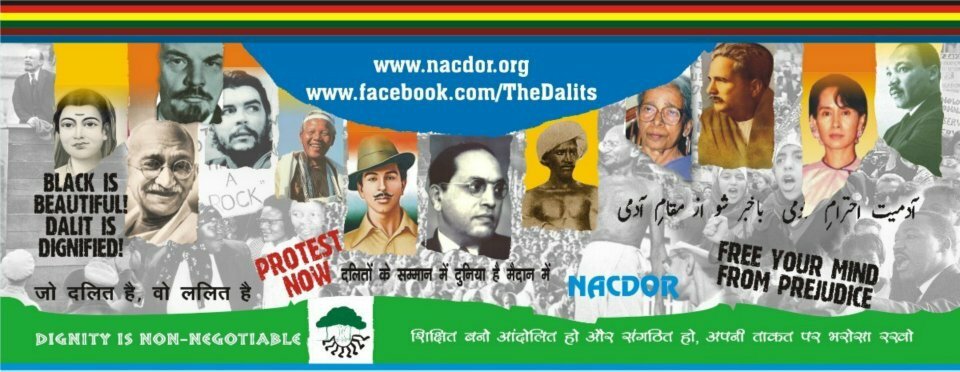Study History at University: Exploring the History of Dalits
Studying history at the university level offers students a unique opportunity to delve into the complexities of human civilization, social structures, and cultural developments. Among the many specialized fields within historical study, the history of Dalits—a marginalized group in India historically subjected to social discrimination and untouchability—provides a critical lens through which students can examine social justice, caste dynamics, and resistance movements. This article explores how to study history of Dalits at university, the key themes and periods covered, and the relevance of this field in contemporary society.
The Importance of Dalit History
The history of Dalits is an essential area of study for understanding the broader socio-political landscape of India and the Indian subcontinent. Historically, Dalits, formerly known as "Untouchables," have faced systemic exclusion and discrimination under the caste system. This deeply entrenched social hierarchy has influenced nearly every aspect of life in India, from social interactions to economic opportunities and political rights. Studying this topic as part of study history at university provides critical insights into the historical context that shapes current societal structures and issues.
By studying Dalit history, students gain insights into the lived experiences of marginalized communities, the roots of social injustice, and the ways in which these communities have resisted oppression. This field not only enriches our understanding of Indian history but also offers valuable lessons on human rights, equality, and social reform. For those looking to deepen their research or seek professional assistance in composing academic papers, services like PaperWriter buy dissertation can provide expert support in crafting comprehensive dissertations on topics such as Dalit history.
Key Themes and Periods in Dalit History
-
Ancient and Medieval Periods: The roots of caste-based discrimination can be traced back to ancient Indian texts and societal structures. During this period, religious and social codes, such as the Manusmriti, codified caste hierarchies, relegating Dalits to the lowest rungs of society. Medieval history often highlights the role of Bhakti saints, who challenged caste discrimination and advocated for spiritual equality. For students or researchers looking to delve deeper into these periods with comprehensive studies, dissertation buy services can be utilized to acquire expertly crafted dissertations that explore these intricate historical layers.
-
Colonial Era: The British colonial period in India saw significant changes in social and political structures. The introduction of Western education and the legal system provided new avenues for Dalit activism. Key figures such as Jyotirao Phule and Dr. B.R. Ambedkar emerged as prominent leaders advocating for the rights and dignity of Dalits. This era also witnessed the formation of Dalit movements and organizations aimed at challenging caste oppression.
-
Post-Independence and Modern Period: The post-independence period saw the drafting of the Indian Constitution, which enshrined principles of equality and prohibited discrimination based on caste. However, despite legal safeguards, social and economic disparities persisted. The study of this period involves examining affirmative action policies, Dalit literature, and ongoing struggles for justice and representation.
-
Contemporary Issues and Movements: In contemporary India, Dalit history intersects with various social movements, including those advocating for land rights, education, and political representation. The rise of Dalit literature and art has also played a crucial role in expressing the experiences and aspirations of Dalit communities. Students studying this period engage with current debates on caste and identity, exploring how historical narratives shape present-day policies and societal attitudes. For more resources and insights into these movements, visiting websites like nacdor.org can provide valuable information and support for those studying or involved in Dalit rights activism.
Relevance of Dalit History Today
Understanding the history of Dalits is crucial for addressing contemporary issues of social justice and equality. The field provides a historical context for current caste-based discrimination and violence, helping to frame these issues within a broader struggle for human rights. It also highlights the resilience and contributions of Dalit communities, offering alternative narratives that challenge dominant historical accounts. Learning how to study history effectively in this context is essential for grasping the nuances of these complex dynamics and fostering a deeper understanding of social change.
Moreover, studying Dalit history fosters critical thinking and empathy among students, encouraging them to question established norms and advocate for a more inclusive society. It equips future scholars, policymakers, and activists with the knowledge and sensitivity required to engage with issues of caste and social inequality, specifically focusing on Dalit education. For students needing specialized support in their academic journey, options like dissertation buy services can assist in obtaining well-researched, professionally written dissertations on complex subjects like Dalit history.
Conclusion
The study of Dalit history at the university level is a vital academic pursuit that sheds light on a crucial aspect of Indian society. It not only enriches our understanding of the past but also informs contemporary efforts to promote equality and social justice. As universities continue to expand their curricula to include diverse and marginalized perspectives, the history of Dalits remains an essential field for students committed to understanding and addressing the complexities of human societies. For those needing comprehensive academic assistance, services that offer dissertation buy options can provide invaluable support in crafting detailed and impactful dissertations on such critical topics.

